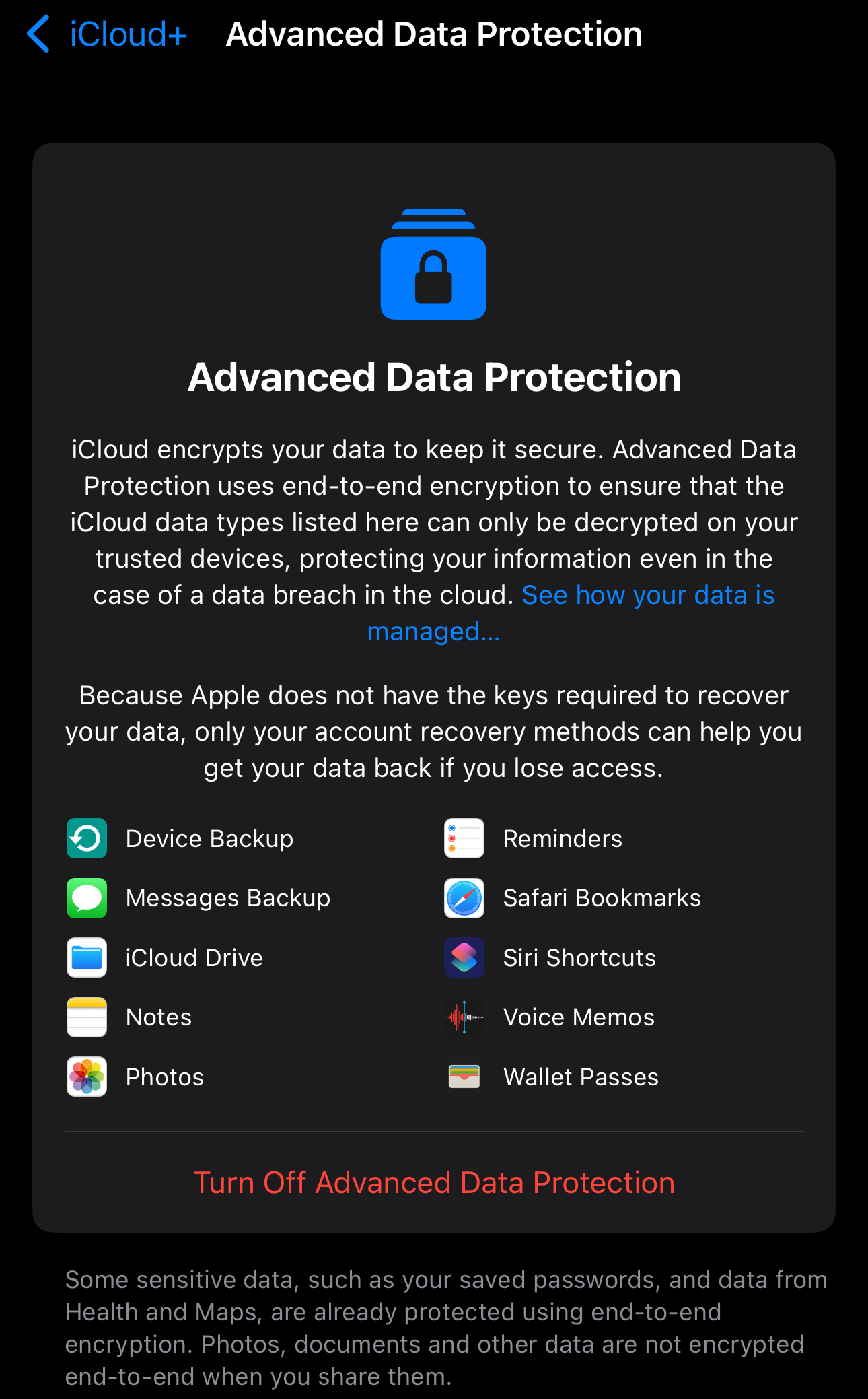Some key quotes from the article:
It’s perfectly reasonable for a consumer cloud storage provider to design a system that emphasizes recoverability over security. Apple’s customers are far more likely to lose their password/iPhone than they are to be the subject of a National Security Letter or data breach (hopefully, anyway).
I wish that companies like Apple could just come right out and warn their users: ‘We have access to all your data, we do bulk-encrypt it, but it’s still available to us and to law enforcement whenever necessary’.
So what is the alternative?
Well, for a consumer-focused system, maybe there really isn’t one. Ultimately people back up their data because they’re afraid of losing their devices, which cuts against the idea of storing encryption keys inside of devices.
You could take the PGP approach and back up your decryption keys to some other location (your PC, for example, or a USB stick). But this hasn’t proven extremely popular with the general public, because it’s awkward — and sometimes insecure.
Alternatively, you could use a password to derive the encryption/decryption keys. This approach works fine if your users pick decent passwords (although they mostly won’t), and if they promise not to forget them. But of course, the convenience of Apple’s “iForgot” service indicates that Apple isn’t banking on users remembering their passwords. So that’s probably out too.

